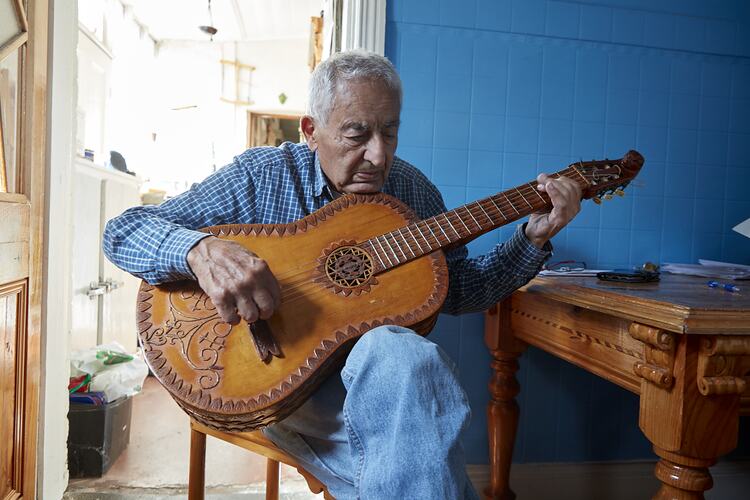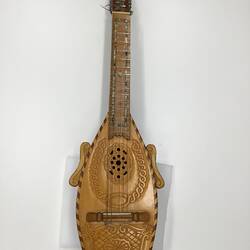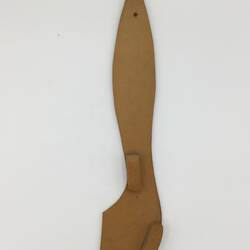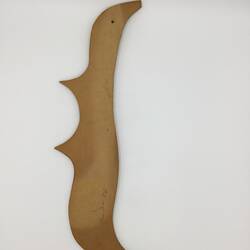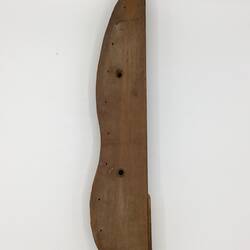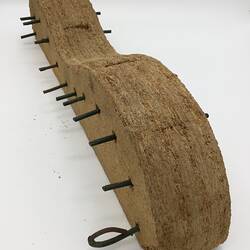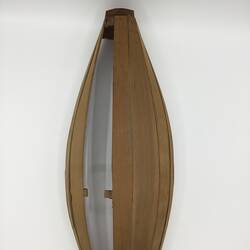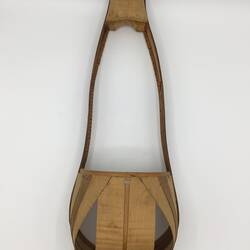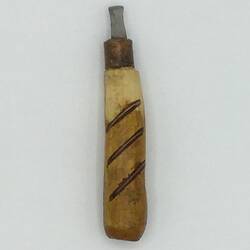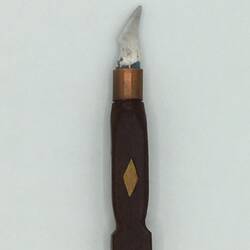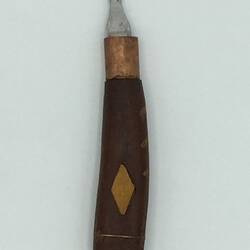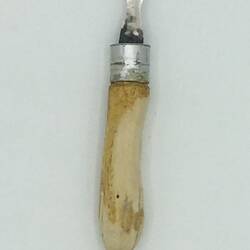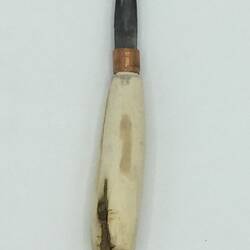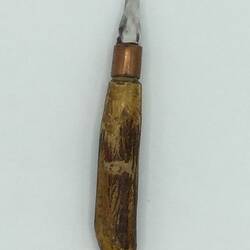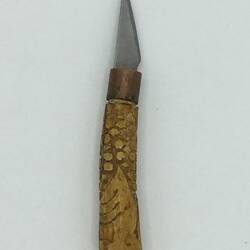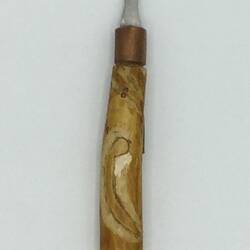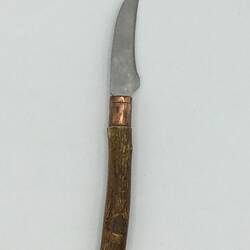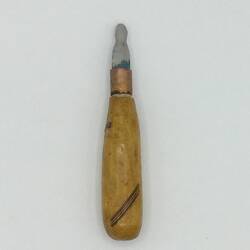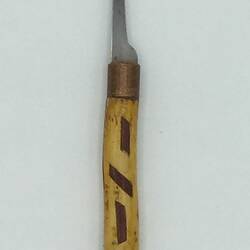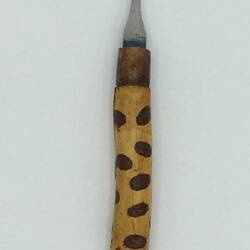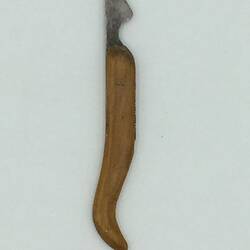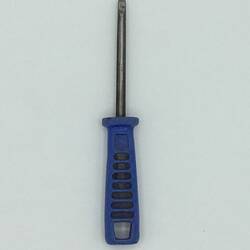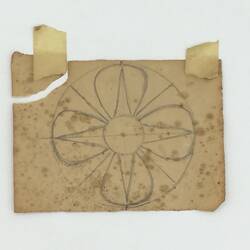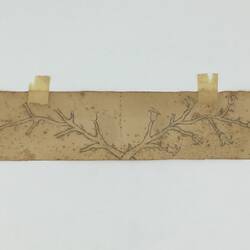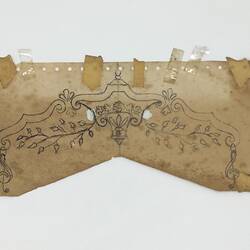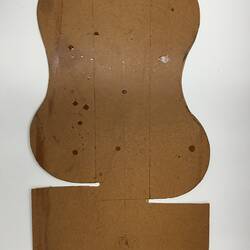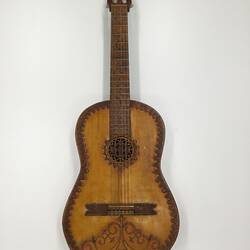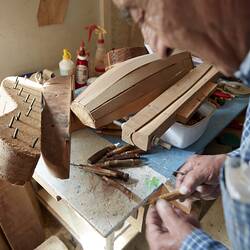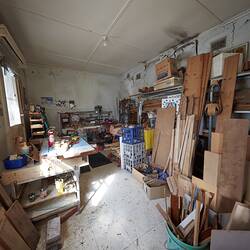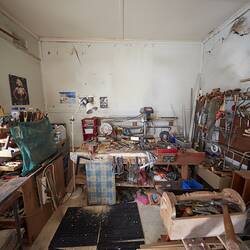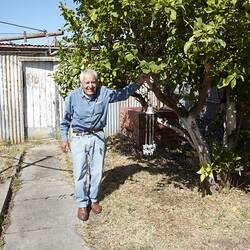Summary
Joseph Scerri migrated to Melbourne from Malta in 1964 and found a lifelong creative outlet through woodwork.
Early Years:
Joseph Scerri (Guzepp Xerri in Maltese) was born on Tuesday November 19, 1940 in the small town of Naxxar, in Malta, during World War II. His childhood family nickname was Kamussu. He had one older and one younger brother. Memories from childhood are scarce, one memory he does have is of his mother calling out 'bomb, bomb' which would see him and his family run to the bomb shelter. On the 23rd September 1946, when Joseph was five years and ten months old, his mother died. Joseph's father's solution to being widowed was to move each of his children in with different relatives. Joseph got moved in with his grandmother.
Migrating to Australia:
In Malta, Joseph and his family were considered poor which meant significantly reduced life opportunities. Until the age of 23 he worked at a quarry which required, 'a lot of heavy lifting' and where he earned 'little money'. Migration seemed a reasonable and logical option. Joseph considered moving to Canada but Canada were means-testing prospective migrants to ascertain financial ability and Joseph didn't meet the financial requirements. A friend in Australia offered to sponsor Joseph, which meant providing him with a place to stay and a job upon settlement. So Joseph migrated to Australia, 'moving to Australia and working meant I had money in my pocket,' and this money brought Joseph 'comfort' and 'freedom'.
Settling In:
Joseph arrived on the ship 'Sydney' on 31st March 1964. The next day on 1st April he started working in a concrete pipe factory in Broadmeadows. He would walk to work and back from his home in Glenroy where he lived with his sponsor. In 1986 Joseph moved to his own place in Brunswick. He never married or had children and still lives in Brunswick today.
Working Life:
On 23rd November 1966 (26 years old), Joseph was involved in a workplace accident at a concrete pipe factory in Broadmeadows - a tractor ran over his leg, resulting in a 72 day hospitalisation. In the 11 months post his discharge from hospital Joseph travelled from Brunswick to Toorak for rehabilitation. He had to wear a calliper for 33 months. Joseph never returned to the concrete factory. He eventually found work at Carlton United Brewery.
In 1971 Joseph was awarded workplace compensation of $10,000 and in December of that year he took the opportunity to return to Malta to visit his father, brothers and cousins and stayed for 11 months including travelling throughout Europe.
Returning to Melbourne in October 1972 Joseph worked a variety of manual jobs, ten years prior to retiring Joseph worked as a cleaner at Greater Union Cinemas in Russell Street and then as a cleaner at RMIT in the city.
Community Life:
Since migrating to Australia, Joseph formed friendships with his neighbours and church community. Joseph didn't have much money, but occasionally on weekends he would visit Valetta, the Maltese coffee shop on Nicholson Street in Carlton where he could meet other Maltese migrants. He also spent a lot of time at the local library reading books on art, woodwork, furniture and paintings. Prior to the Covid pandemic in 2020, he would attend the local Catholic church for Mass three times a week.
Later Years:
Since 2020, Joseph has experienced health issues leading to hospitalisation and having to leave his life-long home to move to permanent care. This has brought up sadness, lament and regret. Joseph stated that when he visits his house again he will 'go there and cry' even though 'men are not allowed to cry,' referencing the tough system of survival with which he was raised. Joseph never married citing, 'I like my freedom', however now he contemplates whether he should have married. Joseph's remaining family are two nephews in Malta whom he speaks to regularly and a niece whom he is not in touch with.
A Creative Life:
At school in Malta Joseph learned Maltese and English. While the other boys at school enjoyed playing soccer with balls they made from cloth and dried grass, Joseph, who 'wasn't any good at sport' turned his attention to carving. He reflects: 'There was not much wood to play with in Malta, so I had a pocket knife and would always carve into the Maltese native stone called gebla tal-franka'.
Joseph's love for woodwork saw him dedicate every spare moment to the craft. He started experimenting making whistles, 'although I could never make one that worked'. Then using his own handmade knife he started working with wood to make objects to include wardrobes, small pieces of furniture, and clock-cases.
In the 1970s Joseph recalls he visited Lewis Music Store in the city and wanted to buy one - but the $3000 cost was prohibitive, so he decided to make one of his own. With encouragement and advice from others, he started making beautiful, handmade, hand-carved and decorated guitars. Each guitar is a work of art.
Joseph had a workshop connected to his kitchen. He sourced the wood from all over the place, 'some wood I brought back from Catania, Italy, some I bought from Lombardi in North Melbourne and some guitars are made from old venetian blinds that someone threw out'. He also visited Model Dockyard in Swanston Street to source bass timber and Hearns under the Flinders Street subway.
Over the years he made nine guitars and a mandolin, one he gifted to a busker he met in the city and two others to a Maltese community museum. All the instruments feature intricate carved decorations and inlay work but Joseph states they have no particular cultural or historical meaning. The instruments all have inscriptions which include the year they were made, sometimes a dedication to a Catholic saint. The mandolin (acquired by Museums Victoria) features shell inlay work.
Joseph created his final guitar in 2006 after which he focused on making furniture and small furnishings. He also produced small knives with hand-carved handles (a selection in the Museum's collection), many made from the wood of the lemon tree in his backyard.
Joseph's relocation from his house in Brunswick to a permanent care facility in 2023 meant the end of an era, as he can no longer engage in the art of woodworking, nor his other love, cooking, both activities that have brought him therapeutic relief, creative expression, joy and an important connection back to his homeland of Malta.
Quotes taken from an interview with Joseph on 20 March 2023.
More Information
-
Keywords
-
Authors
-
Article types
